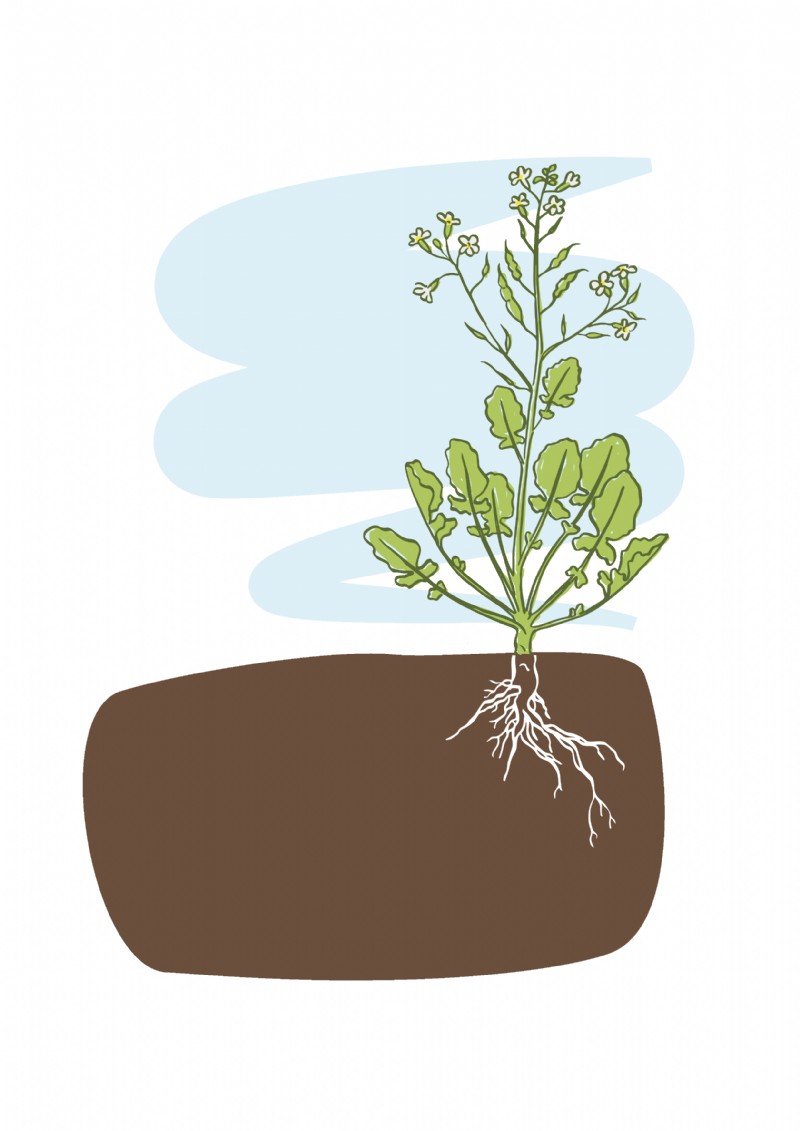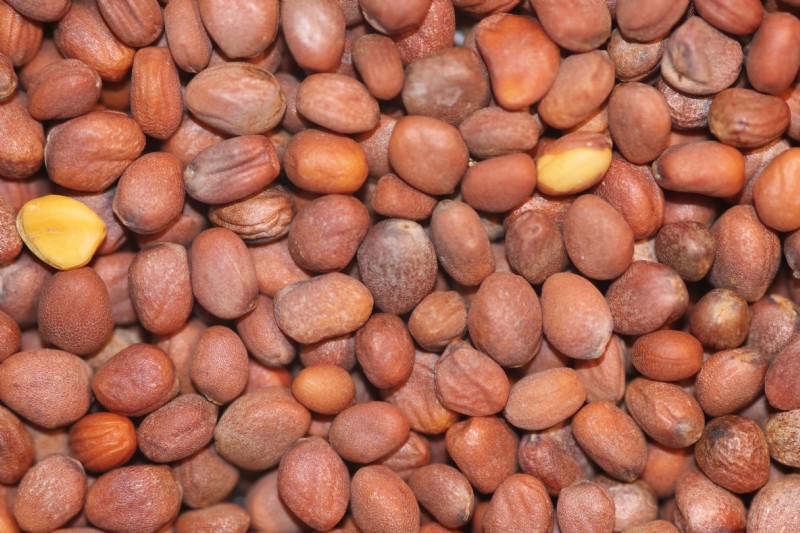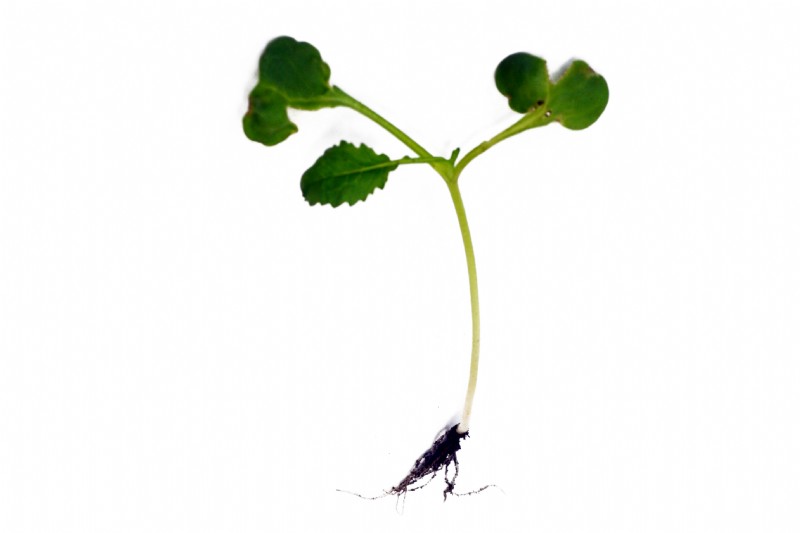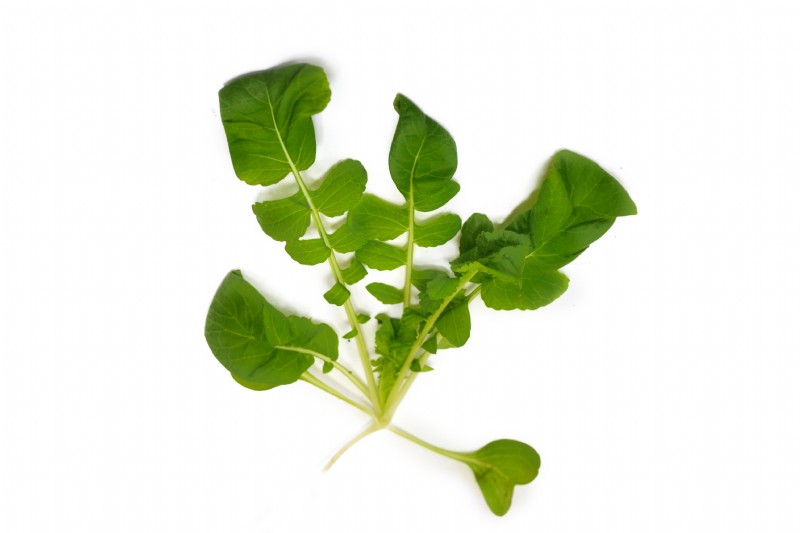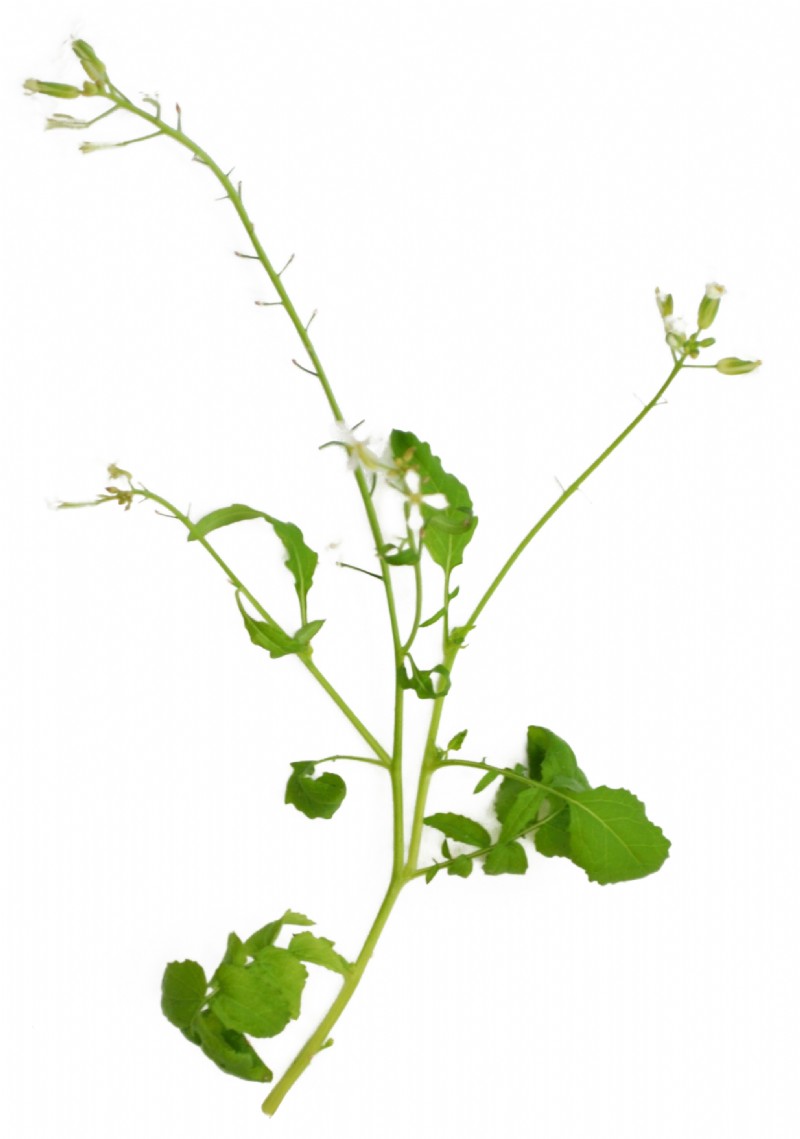Fodder Radish
Also commonly known as oil radish, fodder radish is a brassica, it is not a legume but it will hold any residual nitrogen in the soil, which it will then release as it breaks down over time. This species is slower to flower and go to seed than mustard and produces a deeper root system.
Uses
Used for increasing organic matter and breaking through layers of compaction in the soil. Also used as a seed bearing component of wild bird mixtures.
Persistence
Fodder radish is an annual brassica.
Strengths
Fodder radish holds residual nitrogen in the soil, which it will then release as it breaks down over time It produces a large amount of biomass, which can be incorporated into the soil. This quick growing species is competitive against weeds forming early ground cover in a basal rosette before gaining height and producing a flower head after 6-8 weeks.
Frost Tolerance
Fodder radish is more tolerant to lower temperatures than mustard, however it is not frost hardy and several sharp frosts will usually kill off the plant.
Yield
Large amount of biomass can be produced and incorporated into the soil.
Sowing Rate Advice
5kg per acre / 12.5kg per ha.
This small brassica seed should be broadcast or shallow sown on to a fine seedbed. It should be rolled immediately after sowing. The sowing rate is variable if covering large areas.
Mixture Sowing Rate Advice
1 - 3kgs per acre / 2.5 - 7.5kg per ha.
It can be aggressive and smother other species in a mixture.
Ideal Sowing Time
Sow in the spring, summer or autumn into warm soils.
Management
This annual brassica is not normally topped except to destroy it for incorporation. It can suffer from the usual pests and diseased connected to brassicas, although its quick growing nature can help to grow away from these issues.
Distinguishing characteristics
Seed
The seed has an angular to oblong, irregular shape. It is maroon to dark crimson in colour, with a dull and matt texture. The seed ranges in size from 3 - 4mm, although this can vary. Around 80,000 seeds per kg.
Seedling
The seedling produces two rounded, almost heart shaped cotyledons, The first true leaf has a serrated margin and the beginning of an obvious midvein.
Flowering Plant
As with most brassicas, fodder radish grows from a basal rosette, but with a glossier leaf surface than some.
It develops rounded, segmented, toothed to lobed leaves, that almost cut back into the midrib.
It can be slightly sprawling in its growth habit, but with a stout centre stem.
The flowers are generally white but can be pinkish to lilac, or have coloured veins. Later developing obvious seed pods.
It has a stout taproot with several lateral side shoots.
Additional Info
Average seeds per kg - 100,000. Itís a similar plant to mustard but typically flowering later than mustard and taking longer to set seed.
Works well with
It can provide a deeper root structure to break up soil compaction when combined with the shallow rooting mustard. It can also be combined with seed bearing species like gold of pleasure, mustard, or millets for winter bird food.You can find Fodder Radish in the following mixtures
- One Year Winter Bird Food Survival Mixture (CAHL2/AHL2/AB9)
- One Year Winter Bird Food Survival Mixture 50% ORGANIC
- Two Year Wild Bird Food - CEREAL SEPARATE (CAHL2/AHL2/AB9)
- Two Year Wild Bird Seed Mix 50% ORGANIC CEREAL SEPARATE
- General Purpose Game Mix
- General Purpose Game Mix 50% ORGANIC
- Retrieve Mixture
- Retrieve Mixture 50% ORGANIC
- Summer Green Manure - Early Sown N Fixer
- Winter Cover Crop - Late Sown Winter Cover
- Winter Cover Crop - Late Sown Winter Cover - 50% ORGANIC
- Autumn Sown Bumblebird (AHW1/AB16)
- Summer Green Manure - Early Sown N Fixer - 50% Organic
- Flexi Game Cover 2 Year Mix 50% Organic
- FlexiCover Two Year Game Mix
- FlexiCover One Year Game Mix
- Flexi Game Cover 1 Year Mix 50% Organic
- Diverse Grazable Cover Crop (SOH2/SOH3/CSAM2/SAM2)
- Diverse Grazeable Cover Crop (SAM2) 50% Organic
- Multi Species 8 Way Cover Crop (SAM2)
- Multi Species 8 Way Cover Crop (SAM2) 50% Organic
- Quick Growth Cover Crop (SOH2/SOH3/CSAM2/SAM2)
- Quick Growth Cover Crop (SAM2) 50% Organic
- Summer Quick Fix Mix
- Summer Quick Fix 50% ORGANIC
- Vineyard Soil Improving Brassica Mix
- Vineyard Soil Improving Brassica Mix 50% Organic
- Multi Species Cover Crop (SAM2)


